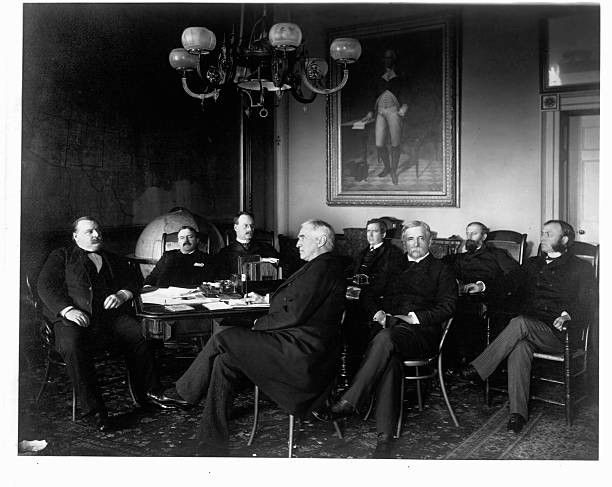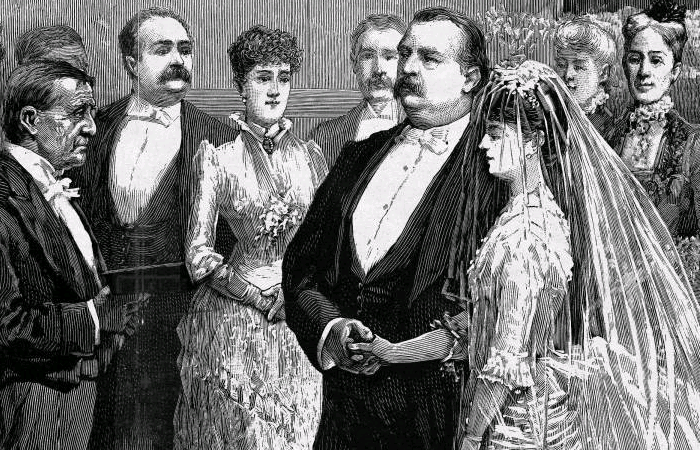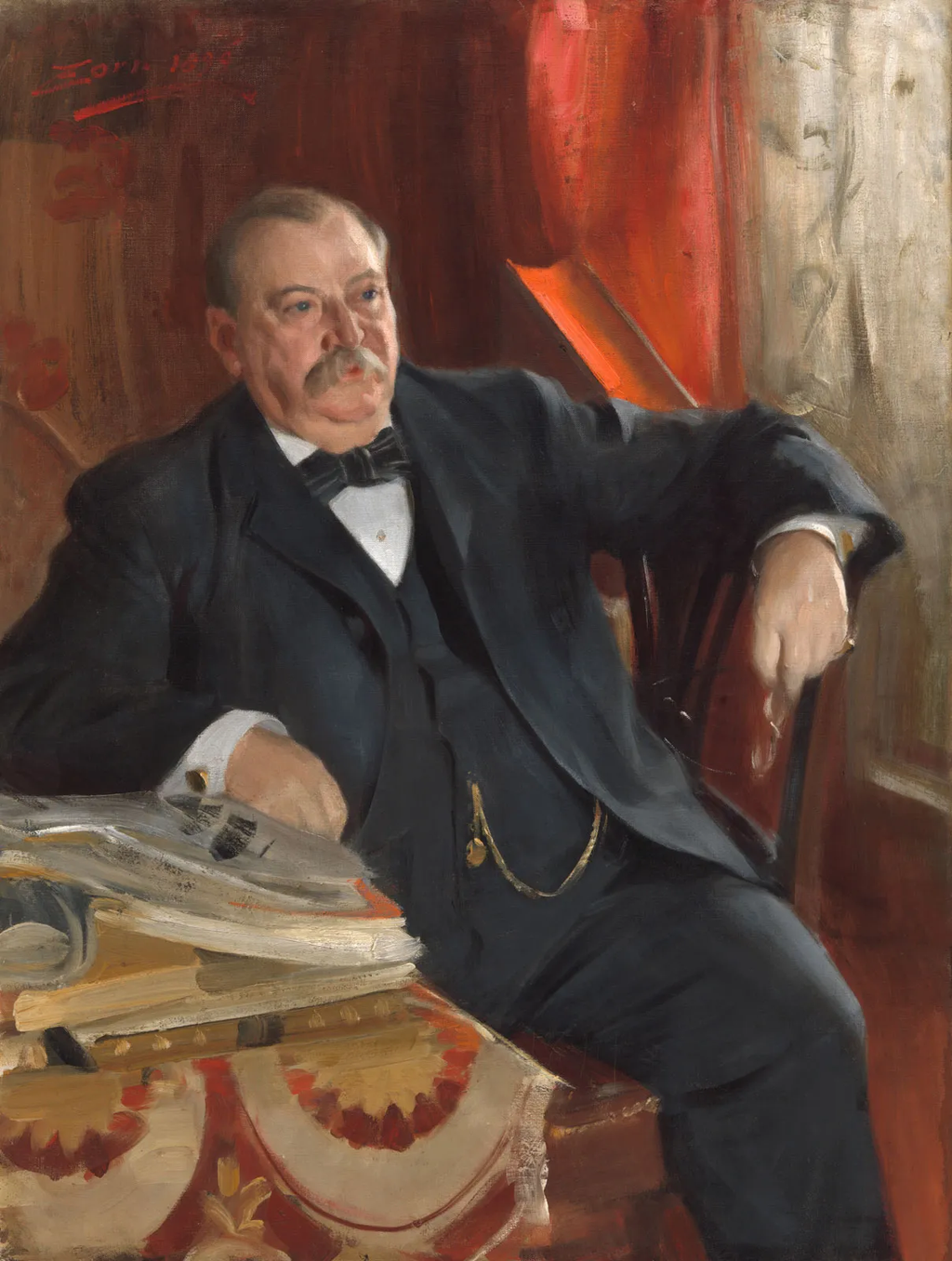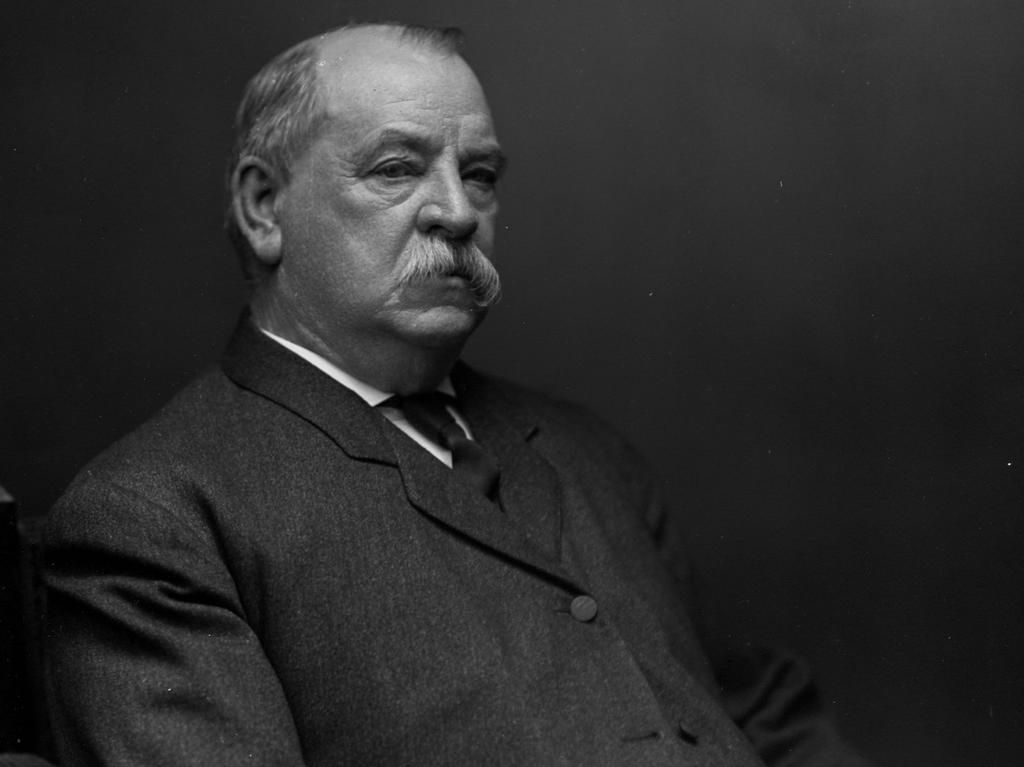Only 2 U.S. presidents have returned to White House after 1st term ejection
)
Donald Trump's victory in the 2024 presidential election has drawn comparisons to a unique historical precedent set by Grover Cleveland, the only other U.S. president to serve two non-consecutive terms.
As Trump prepares to return to the White House after a four-year hiatus, let's explore the remarkable story of Grover Cleveland and his political comeback.
The Rise of Grover Cleveland
Grover Cleveland, born in 1837 in New Jersey, emerged as a prominent political figure in the late 19th century.
A lawyer by profession, Cleveland's political career began when he was elected Mayor of Buffalo in 1881 and later Governor of New York.
His reputation as a reformer and his commitment to tackling corruption propelled him onto the national stage.

First Term as President (1885-1889)
In 1884, Cleveland won the presidency as the Democratic nominee, becoming the first Democrat elected after the Civil War.
He entered the White House as a bachelor and initially struggled to adapt to the opulence and formalities of presidential life.
He humorously expressed his discomfort, preferring simpler meals over the formal elite cuisine served in the White House.
In 1886, Cleveland married Frances Folsom, a 21-year-old he had known for much of her life.
Their marriage, held in the White House, made Cleveland the only sitting President to wed in the Executive Mansion.

During his first term, Cleveland focused on several key issues:
Throughout his presidency, Cleveland championed policies against special favors to economic interests.
He vetoed numerous bills that he believed would unfairly benefit select groups, including farmers, veterans and many more.
Cleveland argued that such federal aid would foster a dependency on government, weakening the self-reliance he saw as vital to American character.
He successfully pressured the railroads to return 81 million acres of land that hadn’t been developed as intended.
In 1887, Cleveland made a controversial appeal to Congress to reduce high protective tariffs, arguing they favored certain businesses over the interests of ordinary Americans.
The 1888 Election and Defeat
Although warned that this stance might hurt his chances for re-election, Cleveland remained steadfast, stating, “What is the use of being elected or re-elected unless you stand for something?”
He ultimately lost the 1888 election to Benjamin Harrison, despite winning the popular vote, because he fell short in the electoral vote count.

Despite winning the popular vote in 1888 with 5.5 million votes vs 5.4 million, Cleveland lost the Electoral College to Republican Benjamin Harrison with 233 to 168 votes.
This defeat, however, did not mark the end of Cleveland's political career.
The Comeback & Second Term (1893-1897)
Cleveland's supporters kept his name in the public eye during his time out of office, much like Trump's allies have done in recent years.
In 1892, Cleveland won both the popular and Electoral vote, reclaiming the presidency and becoming the 24th President of the United States
His second term, however, was marked by a severe economic depression.
Rather than addressing issues such as business failures, mortgage foreclosures, and unemployment directly, he concentrated on securing the Treasury’s gold reserve.
He repealed the Sherman Silver Purchase Act, which had inflated the currency, and collaborated with Wall Street to stabilise the economy.

Cleveland faced intense backlash for his actions during the 1894 Pullman strike in Chicago.
When the strike disrupted mail delivery and violated a federal injunction, Cleveland dispatched federal troops to enforce the order.
He declared that even if it required “the entire army and navy of the United States to deliver a post card in Chicago,” he would see it done.
This firm stance against the strikers was divisive, gaining praise from those who valued law and order but criticism from labour sympathisers.
Cleveland’s legacy also includes his assertive foreign policy, particularly in his dealings with Great Britain.
In a border dispute between British Guiana (now Guyana) and Venezuela, Cleveland demanded arbitration, asserting U.S. interests in the matter.
His assertiveness in foreign policy, especially during the depression, was a source of pride for many Americans, but his domestic policies proved increasingly unpopular.

His party, alienated by his stance on the depression and economic policies, chose populist William Jennings Bryan as their candidate in the 1896 election.
After his presidency, Cleveland retired to Princeton, New Jersey, where he lived quietly until his death in 1908.
While the circumstances of their comebacks differ, both Cleveland and Trump maintained strong bases of support during their time out of office.
Cleveland's ability to stay relevant in the public eye and his party's continued faith in his leadership mirror some aspects of Trump's post-2020 political strategy
)

)
)
)
)
)
)